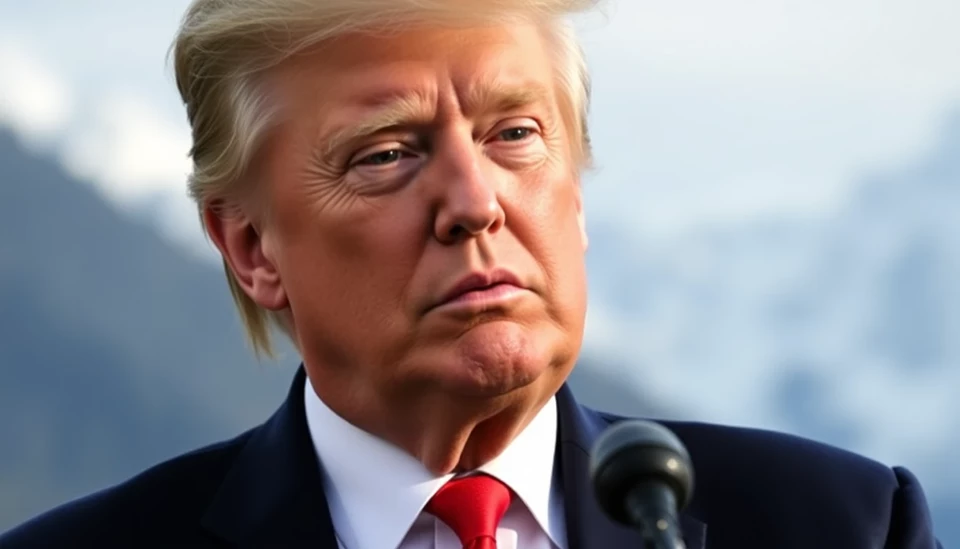
In a surprising move, the Trump administration has announced tariffs on Swiss goods that exceed initial expectations, prompting a wave of reactions from economic analysts and investors alike. The sudden imposition of these tariffs has sparked concerns over potential repercussions for U.S.-Swiss trade relations and the broader implications for global markets.
According to the Swiss National Bank's (SNB) spokesperson, Andrea Tschudin, the tariffs will not only affect bilateral trade dynamics between the U.S. and Switzerland but also potentially disrupt the stability of the Swiss economy. Tschudin highlighted that this measures are likely to have a cascading effect, given that Switzerland is a key player in international finance and trade.
The news of elevated tariffs comes on the heels of an already tumultuous trade environment, where the U.S. has been reassessing its trade policies with various countries around the globe. While the administration has justified these tariffs as a necessary step to protect American interests, economists are warning that such aggressive stances can lead to retaliatory measures from affected nations.
Notably, the higher tariffs may complicate negotiations between Swiss businesses and their American counterparts, potentially leading to increased costs for consumers in both regions. Businesses that heavily depend on trade between the two nations could face significant hurdles as these new tariffs are implemented.
As the situation unfolds, commentators are urging stakeholders on both sides to engage in dialogues aimed at mitigating the fallout from these newly imposed tariffs. There is a growing fear that the tit-for-tat trade practices observed in recent years could escalate again, destabilizing both local economies and global markets.
Looking ahead, economic analysts suggest that these unexpected tariffs could create a ripple effect not just in Switzerland, but across Europe, affecting everything from stock markets to consumer prices. The uncertainty around these tariffs could lead to cautious spending habits among consumers and businesses alike, further contributing to economic volatility.
As the world keeps a close eye on the ramifications of these tariffs, it remains crucial for diplomatic channels to remain open to facilitate better understanding and cooperation in the arena of international trade.
In conclusion, the implications of Trump's higher-than-expected tariffs on Swiss goods are multifaceted and warrant careful scrutiny. Stakeholders are advised to prepare for the potential impacts on trade dynamics and economic stability in the near future.
#TrumpTariffs #SwissTrade #EconomicImpacts #GlobalMarkets #TradeRelations #SNB
Author: Rachel Greene




